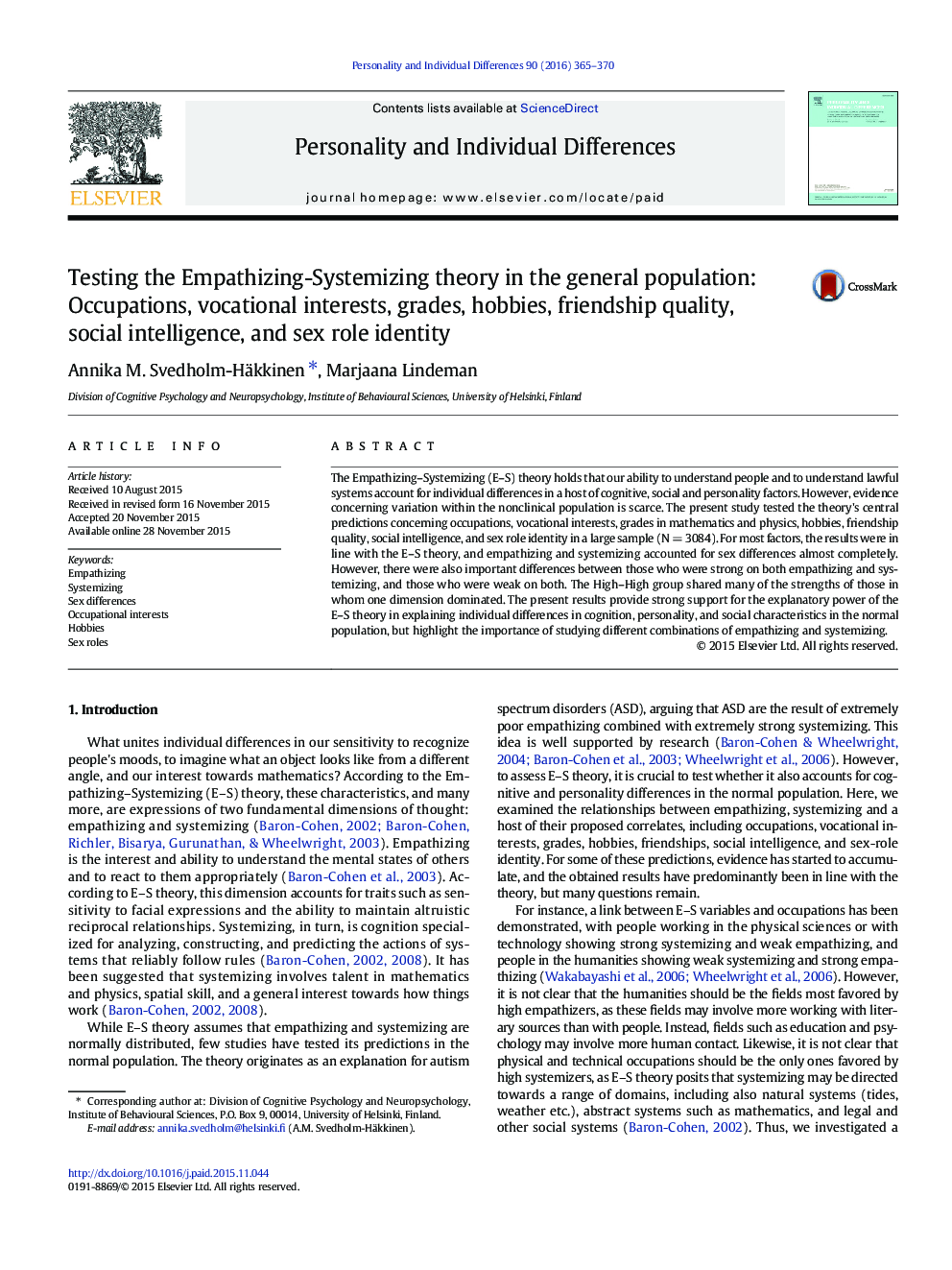| کد مقاله | کد نشریه | سال انتشار | مقاله انگلیسی | نسخه تمام متن |
|---|---|---|---|---|
| 889872 | 1472028 | 2016 | 6 صفحه PDF | دانلود رایگان |
• Tested Empathizing–Systemizing theory's central predictions in the normal population
• Most results were in line with the E–S theory.
• Empathizing and systemizing accounted for most sex differences nearly complete
• Important differences between High–High and Low–Low profiles
The Empathizing–Systemizing (E–S) theory holds that our ability to understand people and to understand lawful systems account for individual differences in a host of cognitive, social and personality factors. However, evidence concerning variation within the nonclinical population is scarce. The present study tested the theory's central predictions concerning occupations, vocational interests, grades in mathematics and physics, hobbies, friendship quality, social intelligence, and sex role identity in a large sample (N = 3084). For most factors, the results were in line with the E–S theory, and empathizing and systemizing accounted for sex differences almost completely. However, there were also important differences between those who were strong on both empathizing and systemizing, and those who were weak on both. The High–High group shared many of the strengths of those in whom one dimension dominated. The present results provide strong support for the explanatory power of the E–S theory in explaining individual differences in cognition, personality, and social characteristics in the normal population, but highlight the importance of studying different combinations of empathizing and systemizing.
Journal: Personality and Individual Differences - Volume 90, February 2016, Pages 365–370
